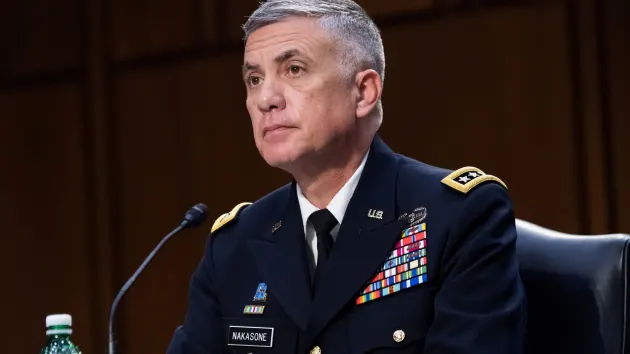### OpenAI Welcomes Retired U.S. Army General Paul M. Nakasone to Its Board of Directors
OpenAI has recently made a significant addition to its board of directors—retired U.S. Army General Paul M. Nakasone, a distinguished leader with extensive experience in the field of cybersecurity. Nakasone previously held prominent roles, including director of the National Security Agency and commander of the U.S. Cyber Command. His expertise positions OpenAI to move forward in the realm of security in an increasingly digital landscape.
#### A Veteran’s Perspective on Cybersecurity
General Nakasone’s military background provides a unique perspective on cybersecurity threats facing organizations today. With the rising incidence of cyberattacks—where data breaches can affect millions of individuals and cost companies billions—it is crucial to understand how to preemptively tackle these issues. According to a recent report from Cybersecurity Ventures, global cybersecurity spending is expected to exceed $1 trillion over the next five years. This underscores the necessity for organizations to invest wisely in safeguarding their infrastructure.
Nakasone will contribute valuable insights that will help OpenAI enhance its understanding of how artificial intelligence can play a pivotal role in bolstering cybersecurity. Imagine an AI system capable of sniffing out a cyber threat in real-time, much like a smoke detector alerts residents to a fire. By quickly identifying and responding to potential threats, OpenAI hopes to lead the charge in reinforcing the safety nets for both businesses and individuals.
#### Formation of the OpenAI Security and Safety Committee
In addition to his board role, Nakasone will also serve on the newly established OpenAI Security and Safety Committee. This committee will undertake a comprehensive assessment of the organization’s security measures over a 90-day period. Following this evaluation, they will make strategic recommendations aimed at strengthening OpenAI’s security protocols and keeping the public informed.
This proactive approach aligns with what experts suggest is vital in today’s cybersecurity climate. According to the 2023 Cybersecurity Intelligence Index, 95% of cybersecurity breaches are attributed to human error. A strong focus on training and awareness, alongside technological solutions, will be essential for any organization looking to secure its digital assets.
#### Strengthening the Board with Diverse Expertise
General Nakasone joins a distinguished group of individuals on OpenAI’s board, which includes Adam D’Angelo, Larry Summers, Bret Taylor, and Sam Altman. The recent expansion of the board also includes new members like Dr. Sue Desmond-Hellmann, Nicole Seligman, and Fidji Simo. This diverse array of expertise combines knowledge from various sectors—technology, economics, and security—to guide OpenAI as it navigates the complex issues surrounding artificial intelligence.
To sum up, the integration of General Nakasone into OpenAI’s leadership not only enhances the organization’s strategic capabilities but also represents a significant commitment to prioritizing cybersecurity in our increasingly digital world. As we embark on this journey, we can look forward to seeing how AI technology evolves to better protect us all.
#### Key Takeaways:
— **Significant Experience**: General Nakasone brings a wealth of military and cybersecurity knowledge.
— **Proactive Cybersecurity**: The integration of AI can revolutionize the speed of cyber threat detection.
— **Diverse Expertise**: A strong board with varied backgrounds strengthens OpenAI’s mission.
— **Focus on Safety**: OpenAI is dedicated to ensuring the highest standards of security for its users and stakeholders.
As we continue to explore the intersection of AI and cybersecurity, having leaders like General Nakasone at the helm ensures that we are not just reacting to threats but actively working to prevent them before they occur. This kind of foresight is what will keep our digital landscapes safe and secure.






